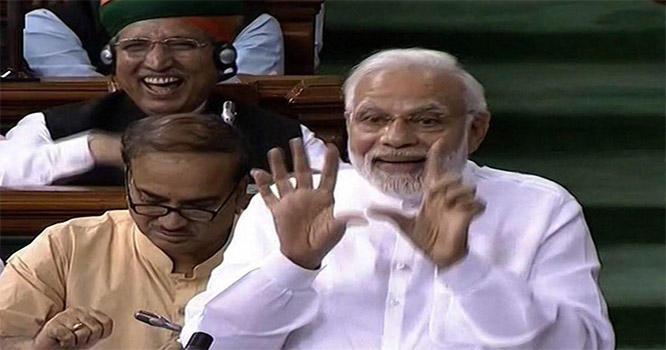On November 11 every year, India celebrates the National Education Day to commemorate the birth anniversary of Maulana Abul Kalam Azad, a prominent freedom fighter and first education minister of independent India, who played a crucial role in synthesizing Muslims and Hindus of the country by exposing the divide-and-rule policy of the British.

In the independent country, the focus on education was paramount for the learned understood that no true nation can develop until and unless education was considered a fundamental pillar. Speaking at All India Education on January 16, 1948, Azad had said, "We must not for a moment forget, it is a birthright of every individual to receive at least the basic education without which he cannot fully discharge his duties as a citizen."
Maulana Azad was born as Abul Kalam Ghulam Muhiyuddin on November 11, 1888 in Makkah in an Indian origin family. Since a very young age, Maulana Azad was a literature enthusiast. He had mastered several languages including Urdu, Hindi, Persian, Bengali, Arabic and English. He translated the meaning of Quran to Urdu. He is considered as one of the greatest Urdu writers of the 20th century. His work was recognized through his journalistic practice, publishing works critical of the colonial British Raj and espousing the causes of Indian nationalism. He has also written many books including India Wins Freedom, Ghubar-e-Khatir, Tazkirah and Tarjumanul Quran.
Maulana Azad became the leader of the Khilafat Movement, during which he came into close contact with the Indian leader Mahatma Gandhi. He was an enthusiastic supporter of Gandhi's ideas of non-violent civil disobedience, and worked to organise the non-co-operation movement in protest of the 1919 Rowlatt Acts. In 1920, he was elected as one of the founding members to establish Jamia Millia Islamia at Aligarh in Uttar Pradesh without the help of the British. In 1923, at an age of 35, he became the youngest person to serve as the President of the Indian National Congress.
Maulana Azad was given the charge of the Education Minister for free India in 1947. At the time, India, though free, was reeling through the years of exploitation. Contrary to ordinary belief, the education system under the British India was rudimentary at best. The only schools of excellence were set up by the Indian revolutionaries who managed to bring modern education to India. At a grass root level, however, India was still suffering from widespread illeteracy.
Understanding the fundamental role education plays in the development of the nation, Maulana Azad as the Chairman of Central Advisory Board of Education, gave impetus to Adult Education and Literacy. Not only did he lay emphasis on elementary education but also propagated diversification of secondary education and vocational training.
Under his tenure as Education Minister (1947 to 1958), he founded most of the major cultural and literary academies we have today including Sangeet Natak Academy, Lalit Kala Academy, Sahitya Academy as well as the Indian Council for Cultural Relations and School of Planning and Architecture.
He was responsible for setting up of The Central Institute of Education, Delhi which later became the Department of Education of Delhi University. The setting up of Indian Institute of Technology (IIT) in 1951, the University Grants Commission (UGC) in 1953 are all credited to his vision. He also lay stress on and was the primary propagator of Indian Institute of Science, Bengaluru and Faculty of Technology of Delhi University and a founder of Jamia Millia Islamia University.
Maulana Azad always emphasised on quality education and considered schools as laboratories which produced future citizens of the country. He strongly believed in free primary education and compulsory education to all children. He was awarded with the highest civilian honour, the Bharat Ratna in 1992.


















Comments
Add new comment